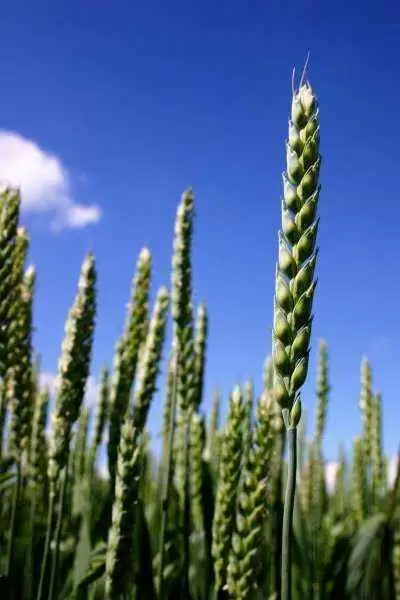
Celiac.com 09/25/2015 - Are anti-GMO campaigners blocking gluten-free wheat that could help people with celiac disease?
There's an interesting blog post by Daniel Norero in Open Original Shared Link. The blog post claims that a type of GM wheat that may improve the quality of life for celiac patients has faced opposition from anti-GMO campaigners who oppose approval and commercialization of the product.
Celiac.com Sponsor (A12):
Certainly, producing a variety of gluten-free wheat offers one alternative to avoiding gluten. However, it is difficult, if not impossible, to create a baking-quality gluten-free wheat strain using conventional techniques such as selection and hybridization.
That reality led a team of Spanish scientists, headed by Dr. Francisco Barro, to use RNA interference (RNAi) to deactivate or delete the genes in wheat that produce the gliadin proteins. By 2011, the team had created four strains of wheat with particularly low amounts of gliadins, which produced in people with celiac disease a reaction up to 95% less toxic than the one produced by standard wheat.
Two of those wheat strains, E82 and D793, showed gliadin reductions of about 96% and 97% respectively. For people with celiac disease, this would equate to a safe maximum daily consumption of bread up to 43.6 and 66.9 grams per day.
The blog entry goes on to say that, despite the opportunity presented by this GM crop to improve the quality of life of celiac patients, problems have arisen at the approval and commercialization stages, largely due to opposition from Spanish and European anti-GMO activists.
Norero then quotes from blog post by Jose Miguel Mulet, a Spanish plant scientist from CSIC:
Norero makes an interesting read. It's certainly possible that some type of genetic modification could benefit people with celiac disease. However, it's unclear how a wheat with a 95-97% reduction in gluten toxicity would relate to the current 20ppm total gluten allowed by U.S. law, or exactly what the nature of the alleged benefits for celiacs might be.
What do you think? Should genetically modified wheat be permitted if it's helpful to people with celiac disease or gluten intolerance? Or no, should there be no GMO wheat, no matter the claimed benefits?









Recommended Comments
Create an account or sign in to comment
You need to be a member in order to leave a comment
Create an account
Sign up for a new account in our community. It's easy!
Register a new accountSign in
Already have an account? Sign in here.
Sign In Now